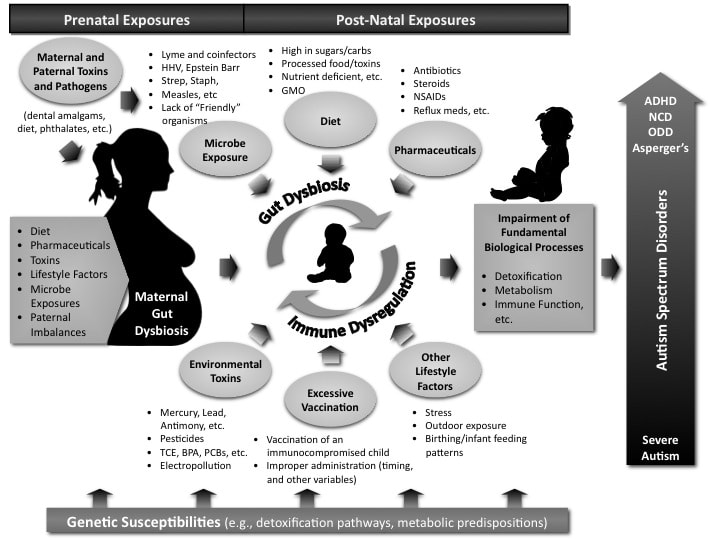Autism is a term used to describe a spectrum of disorders that are characterized by abnormalities in communication, socialization and behavior.
Autism is still believed by many to be a psychiatric or behavioral disorder–a disorder whose origin is in the brain.
In fact, autism is actually a medical disorder linked to severe impairments to both the immune system and the gastrointestinal system (among other biological impairments).
The profound biological impairments found in the bodies of children with autism correlate with neurological and behavioral symptoms.
Thus, by addressing the underlying biological impairments in a child with autism (especially with regard to the immune and gastrointestinal systems) improvements in neurological and behavioral function can be seen.
What are autism causes?
While no group of scientists, physicians or researchers claim to know “the” cause of autism (especially since it is likely to be many variables that are different for each child), many autism experts are beginning to put the pieces of the puzzle into place.
The answer to what causes autism can be found by looking at the origins (often environmental) of the severe biological impairments experienced by children with autism.
Why do children with autism have such profound biological impairments?
Below is a graphic that illustrates how a “perfect storm” of environmental factors can contribute to the development of autism.
This perfect storm includes factors like environmental toxins, diet and nutrition, medication use and others. The environmental triggers that lead to autism tend to vary from child to child.

Increasingly, research scientists are looking into the role that mitochondrial dysfunction plays in causing the symptoms of autism.
While mitochondrial dysfunction is increasingly understood as an important causative factor in the symptoms of autism, gut dysbiosis and immune dysregulation may be responsible for triggering mitochondrial dysfunction in children with autism.
It is a complex cascade of biological events where gut dysbiosis and immune dysregulation lead to mitochondrial dysfunction.
Click here to learn more about the role of mitochondrial dysfunction in the pathophysiology of autism.
